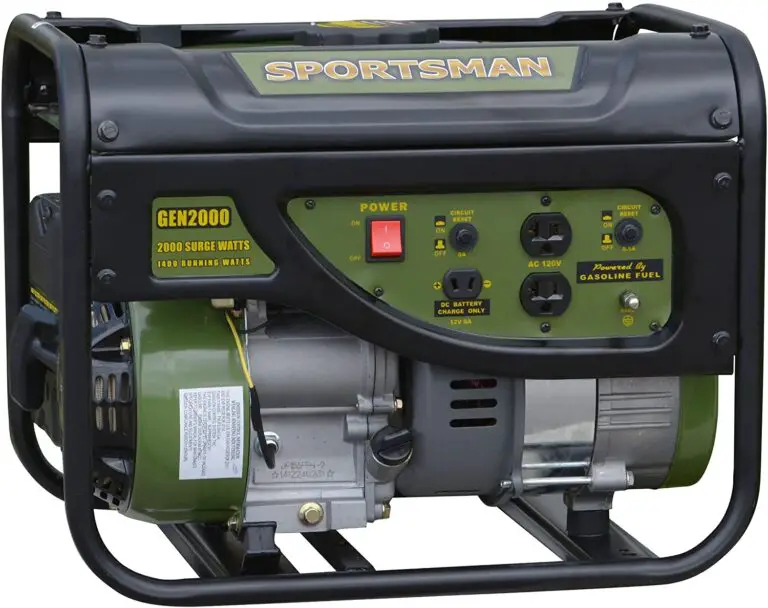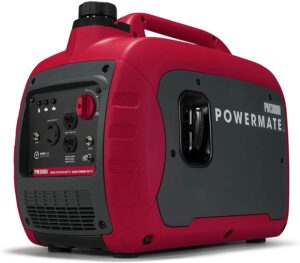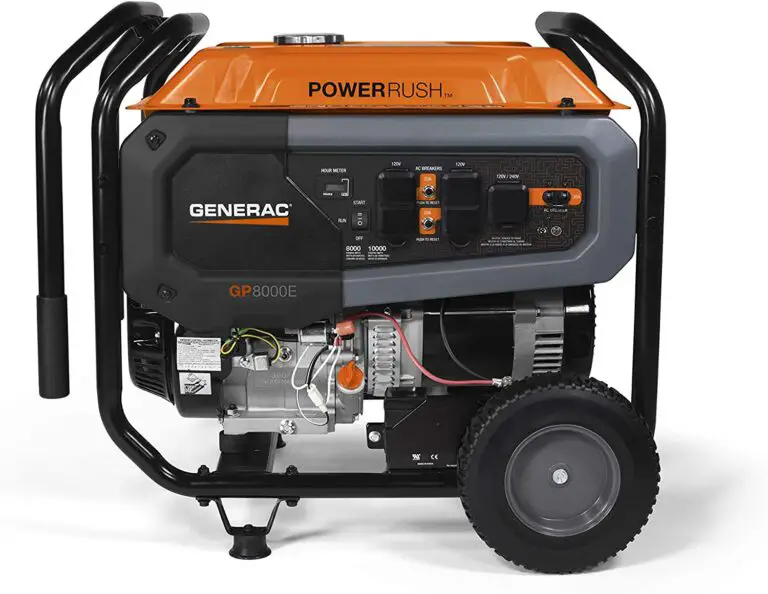Your cart is currently empty!

The Best Portable Generators for Camping
Portable generators allow you to operate your RV in areas where there is no electricity or bring devices on your tent camping vacation. A movie night in the woods is a great concept, and it’s perfectly practical thanks to generators.
Choosing the appropriate generator can be a difficult undertaking, especially when you consider the price tags. While price is crucial, you must also consider a number of other aspects. When you’ve taken the time to figure out what you’ll need and compare models within your budget, picking a portable generator for camping is a lot less stressful.
Table of Contents
- What To Consider When Buying A Portable Generator
- Here Are Our Top 5 Selected portable generators for camping
What To Consider When Buying A Portable Generator
Quiet
Some generators are fairly loud, and the sound might travel quite far depending on where you’re camping. The volume of a sound is generally measured in adjusted decibels (or dBA). An average conversation between two persons has a level of roughly 60 dBA. Many portable generators, believe it or not, have an adjusted decibel rating of 60dBA or less when measured from 20 feet away. Some generators are solar-powered or may be charged in various ways; in many situations, these versions can run quietly.
Power
If you’re tent camping, a small generator will suffice; however, if you’re camping in an RV, a 2500-watt generator or larger will be required to power your appliances. You’ll need to study the starting and running wattages of your most often used appliances if you plan to use your portable generator.
The central air conditioner is usually the most power-hungry device in an RV. It takes roughly 1700-1800 watts to start and 600-650 watts to run a 7,000 BTU air conditioner. If your RV’s air conditioner is 15,000 BTUs, it could take up to 3500 watts to turn on.
Weight
Generators can be quite heavy. Some generators are as light as 40 pounds, but if you require 3000 beginning watts or more, you may need a generator that weighs 100 pounds or more. If weight is a problem, you may need to plan on using fewer appliances or only one appliance at a time in order to use a smaller machine.
Cost
You may anticipate spending between $350-$600 on a generator with 1200-2400 starting watts. Generators with a starting power of 3000-3500 watts might cost upwards of $800.
Here Are Our Top 5 Selected portable generators for camping
These are our handpicked competitors for the best portable generators on the market. You really can’t go wrong with one of these.
WEN 56203i 2000-Watt Portable Inverter Generator

- Ultralight body weighs in at a mere 39 pounds for easy transport and storage
- Extremely quiet operation comparable to the sound of a normal conversation according to the US Department of Health and Human Services
- Produces 2000 surge watts and 1700 rated watts of clean power for safe charging of sensitive electronics (phones, tablets, televisions, computers, etc.)
- Fuel shutoff maximizes the generator’s lifespan by using up the remaining fuel in the carburetor before shutting down
- Includes two three-prong 120V receptacles, one 12V DC receptacle, two 5V USB ports, and a two-year warranty
PROS
- It is super quiet
- The pull start was very easy
- lightweight
- The fuel shutoff included on this model is very useful.
- It is easy to understand and Operate Manual
CONS
- Not support Dual Fuel
Champion Power Equipment 100692 2000-Watt Portable Inverter Generator

- At only 39 pounds, this inverter is one of the lightest 2000-watt inverters in the industry
- 58 dBA from 23 feet is perfect for camping, tailgating or to backup a few home essentials, featuring 2000 starting watts, 1700 running watts and up to 11.5 hours run time
- The optional clip-on parallel kit enables this inverter to connect with another 2000-watt Champion inverter to double your output power
- Includes two covered 120V 20A household outlets with clean electricity (less than 3% THD)
- Includes 3-year limited warranty with FREE lifetime technical support from dedicated experts
PROS
- Easy To start. Lightweight, Quiet
- Good instructions
- Good warranty
- Comes with it’s own car 12v adaptor, including a USB double outlet
CONS
- Manual Start
Sportsman GEN2000

- 2,000 Watts Rated, 1,400 Starting Watts; Outlets: 2-120 volt AC outlets and 1- 12 volt DC outlet for battery charging
- Runs off of gasoline, 2.6 HP, 4 stroke OHV engine with low oil shutdown, 3600 RPM, 87cc; EPA approved
- Runs for 9 hours on a full tank of gas (1.2 gal.) at 50% load, Decibel rating < 65 decibel
- Recoil Start, Weight: 53 lbs.; Dimension: 18.5″ (L) x 14.75″ (W) x 16″ (H)
- 1 Year Limited Warranty
PROS
- It’s medium size and compact.
- Easy to start.
- It’s quiet.
- 1 Year Limited Warranty
CONS
- No Wheels
Powermate PM3000i

- Powerdial Recoil Start (Off/Run/Cold Start) offers three settings integrated into one simple-to-use dial.
- Ultra quiet performance with fully enclosed case.
- RPM+ automatically adjusts engine RPM based on load demand to reduce sound emissions and conserve fuel.
- Clean, stable power with less than 3% total harmonic distortion for safe operation of sensitive electronics. 1.06 Gallon fuel tank provides a 5.8 hour run time at 25% load.
- Lightweight design with built-in handle for easy portability. Powermate OHV Engine provides consistent power for multiple applications. Low-oil level shutdown prevents engine damage.
PROS
- Very easy to use
- Quiet
- Not too bulky, It is a lightweight
- Electric start
CONS
- Not support Dual Fuel
Generac 7676 GP8000E Portable Generator

- Featuring power Rush advanced technology – delivers over 30% more starting capacity allowing you to do more with less
- Dimensions: 27.2″ W x 27″ D x 26.5 H | Weight: 198 lb
- 10000 Starting Watts. 8000 Running Watts
- Electric start Model for easy operation (Battery included)
- Generac durable OHV engine with splash lubrication provides a long engine life
- Large-capacity steel fuel tank with incorporated fuel gauge provides durability and up to an 11 hour run-time at 50% load
PROS
- Easy to operate.
- Quite
- Electric start
- 11 hour run-time at 50% load
CONS
- This is heavy.
Leave a Reply